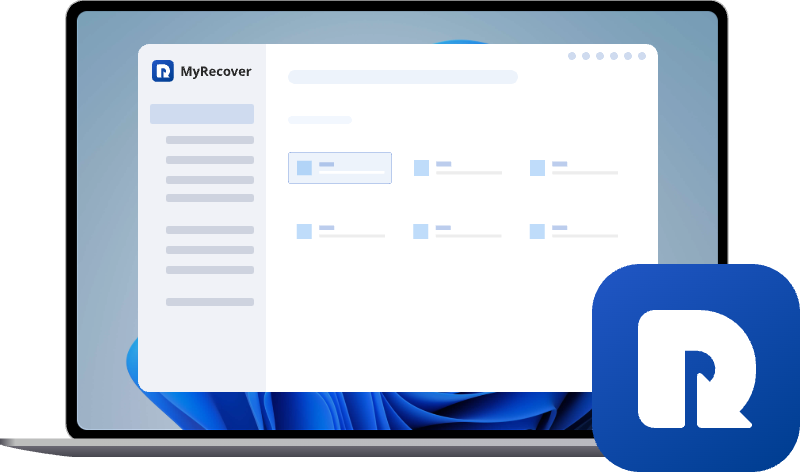Computer Shuts Down in Sleep Mode
This article addresses the issue of computers shutting down unexpectedly in sleep mode and provides detailed solutions to resolve it. It also includes recommendations for software and answers frequently asked questions related to the topic.
Introduction
Have you ever experienced your computer shutting down abruptly when it is in sleep mode? This common problem can be frustrating and disrupt your workflow. In this article, we will delve into the causes of this issue and provide you with comprehensive solutions to fix it. Whether you are a novice or an experienced computer user, you will find valuable information to help you resolve this problem.
The Problem: Unexpected Shutdowns in Sleep Mode
One of the most common issues faced by computer users is the sudden shutdown of their system while it is in sleep mode. This problem can arise due to various reasons, including hardware and software issues. Let's explore some of the potential causes of this problem:
1. Overheating
One possible cause of unexpected shutdowns in sleep mode is overheating. When the computer is in sleep mode, it should reduce its power consumption and generate less heat. However, if the cooling system is not functioning optimally or if there is excessive dust buildup, the computer may overheat and shut down to prevent damage to its components.
2. Power Settings
Incorrect power settings can also lead to unexpected shutdowns in sleep mode. If the computer is configured to enter sleep mode but fails to wake up properly, it may shut down instead. This issue can occur due to outdated or incompatible drivers, BIOS settings, or faulty power management features.
3. Hardware Malfunction
A malfunctioning hardware component, such as a faulty power supply unit (PSU), can cause the computer to shut down unexpectedly in sleep mode. If the PSU is unable to supply consistent power to the system, it may result in sudden shutdowns. Similarly, other hardware issues like a failing motherboard or RAM can also contribute to this problem.
Solutions
Now that we have covered the causes of unexpected shutdowns in sleep mode let's explore some effective solutions to fix this problem:
1. Check Cooling System
- Ensure that the cooling fans inside your computer are functioning correctly. Use compressed air to remove any dust or debris that may be obstructing airflow.
- If the cooling system is not working properly, consider seeking professional assistance to clean or replace the fans to prevent overheating.
- Keep your computer in a well-ventilated area and avoid blocking the air vents to encourage better airflow.
- Consider using a cooling pad or stand to further enhance the cooling of your laptop.
- Regularly monitor the temperatures of your computer using software tools to identify any potential overheating issues.
2. Adjust Power Settings
- Update the drivers and BIOS of your computer to ensure compatibility with the latest power management features.
- Disable hibernation mode in the power options as it can sometimes interfere with sleep mode functioning. You can do this by going to Control Panel > Power Options > Change Plan Settings > Change Advanced Power Settings > Sleep > Hibernate after. Set this value to 0 minutes.
- Restore power plan settings to default by going to Control Panel > Power Options > Change Plan Settings > Restore Default Settings for this Plan.
- Run Windows Troubleshooter to diagnose and fix any power-related issues on your computer.
- Perform a clean boot to identify if any third-party software or services are conflicting with sleep mode.
3. Hardware Check
- Inspect the PSU and ensure that it is functioning correctly. If necessary, replace it with a new one.
- Check for any loose connections within your computer, including the motherboard and RAM modules. Reinsert them firmly if required.
- Update your computer's drivers to the latest versions to ensure compatibility and stability.
- Conduct a thorough malware scan using reliable antivirus software to eliminate any potential malicious threats.
- If the problem persists, consider seeking professional help to diagnose and repair any underlying hardware issues.
Software Recommendation
We recommend using the software 'SpeedFan' to monitor the temperature of your computer components and adjust fan speeds accordingly. This free software allows you to keep a close eye on the temperature levels and take immediate action if overheating is detected. However, please note that improper usage or modification of fan speeds can potentially damage your system. Exercise caution while using this software and refer to the official documentation for guidance.
FAQs
Q: Why does my computer shut down in sleep mode?
A: There can be multiple reasons for your computer shutting down unexpectedly in sleep mode. Some potential causes include overheating, power settings issues, and hardware malfunctions. Refer to the earlier sections of this article for detailed information on each of these causes and their respective solutions.
Q: How can I prevent my computer from shutting down in sleep mode?
A: To prevent unexpected shutdowns in sleep mode, ensure that your cooling system is functioning properly, adjust your power settings, and regularly check your hardware components for any malfunctions. Follow the provided solutions in this article for a step-by-step guide on resolving this issue.
Q: Will updating my drivers fix the sleep mode shutdown problem?
A: Yes, updating your drivers, including graphics, chipset, and power-related drivers, can potentially resolve the sleep mode shutdown problem. Outdated or incompatible drivers can cause issues with sleep mode functionality. Consider visiting the manufacturer's website or using automatic driver update software to ensure you have the latest drivers installed.
Q: Can a virus or malware cause sleep mode shutdowns?
A: Yes, certain viruses or malware can interfere with sleep mode and cause unexpected shutdowns. It is crucial to keep your computer protected with reliable antivirus software and perform regular malware scans to eliminate any potential threats.
Q: Is it necessary to consult a professional for hardware-related sleep mode shutdown issues?
A: If you have tried the solutions provided in this article and the sleep mode shutdown problem persists, it may be beneficial to seek professional assistance. Hardware-related issues like a failing PSU or motherboard are best diagnosed and repaired by experts to avoid further damage to your computer.
Q: Can I use third-party software to adjust power settings?
A: While there are third-party software options available to adjust power settings, it is recommended to utilize the built-in power management features provided by your operating system. Third-party software may not always be compatible or reliable, potentially causing further issues with sleep mode functionality.
Explanation of Tech Terms
1. Sleep Mode: Sleep mode is a power-saving state that allows your computer to consume minimal power when not in use. It enables quick recovery and resume of your work by preserving the system's current state in memory. However, unexpected shutdowns in sleep mode can disrupt your workflow and pose challenges.
2. Power Supply Unit (PSU): The power supply unit (PSU) is a hardware component responsible for converting the AC power from your electrical outlet into the DC power required to operate your computer. A malfunctioning PSU can lead to various issues, including unexpected shutdowns in sleep mode.
3. BIOS: BIOS stands for Basic Input/Output System. It is a firmware embedded within your computer's motherboard that initializes and performs basic hardware initialization functions. BIOS settings can affect the overall performance and behavior of your system, including sleep mode functioning.
Tips
- Regularly clean the dust and debris from your computer's internals to prevent overheating issues.
- Ensure that your computer is always updated with the latest operating system and driver patches to benefit from bug fixes and enhancements related to sleep mode functionality.
- Avoid running resource-intensive programs while your computer is in sleep mode to minimize the chances of unexpected shutdowns.
Conclusion
In conclusion, unexpected shutdowns in sleep mode are a common problem faced by many computer users. By understanding the causes and applying the solutions provided in this article, you can overcome this issue and enjoy uninterrupted sleep mode functionality. Remember to regularly monitor your computer's temperature, adjust power settings, and maintain your hardware components properly to prevent future occurrences of this problem. Implement the recommended software and follow the tips to optimize your computer's performance and ensure a seamless experience in sleep mode.


